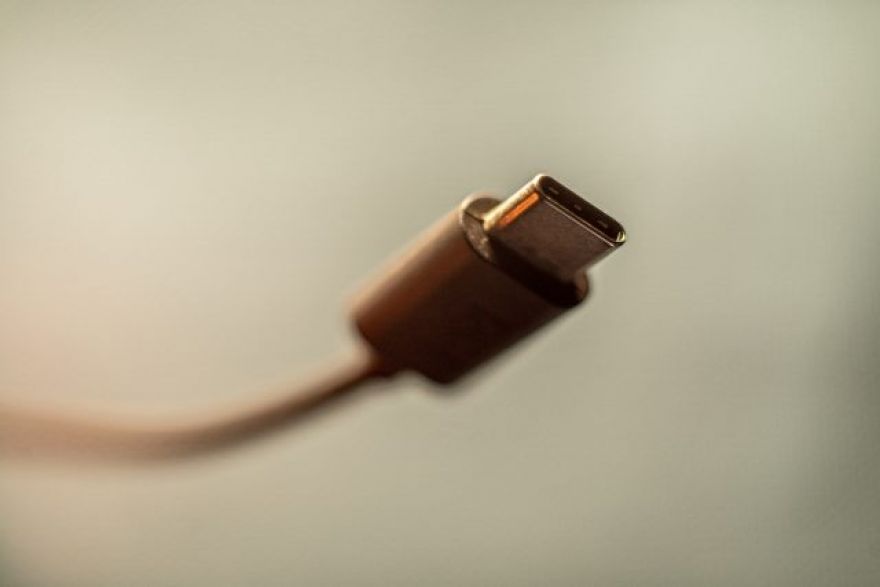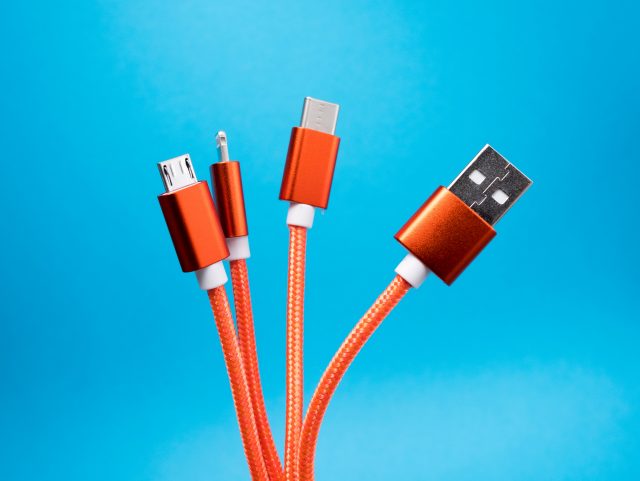
EU Will Require New Phones to Have USB-C by Late 2024
The , announced Tuesday, is the beginning of a wider effort to reduce e-waste and “make consumers’ lives easier.” Instead of needing to keep a tangled mess of USB, micro-USB, USB-C, and Lightning cables on-hand, device owners in the EU will be able to charge their new small and medium-sized electronics using a single universal cable.
Rumors of a government-enforced universal charger have swirled around Europe (and the rest of the world) for a while, beginning with the European Commission’s original back in September. USB-C charging ports were already popular—a refreshing upgrade from the semi-universal micro-USB many electronics used, which was slower and more annoying to plug in.

Why need all of these when you could just use one? (Photo: Lucian Alexe/Unsplash)
Of course, the proposal prompted questions about whether Apple would ever budge from its staunchly pro-Lightning cable stance. While Apple was one of the first major personal electronics manufacturers to embrace USB-C laptop charging, it had just changed its iPhones’ ports from the laughably wide 30-pin to the reversible Lightning connector less than a decade prior. On the other hand, Apple had recently switched its iPads to USB-C and was reportedly a USB-C iPhone (likely to avoid losing a majority of its European market). Some think Apple should be a bit more motivated to move toward universal USB-C, given its move to “reduce e-waste” (and save $6 billion per year) by no longer including charging cables with new iPhones back in 2020.
In a similar style, EU consumers will now be able to “choose whether they want to purchase new electronic equipment with or without a charging device.” It’s unclear how this will work logistically, but it’s likely that new electronics will come without a charger, forcing consumers to purchase a new one if they haven’t managed to add a USB-C cable to their collection yet.
At the end of its summer recess, the European Parliament and Council will choose whether to formally approve the Commission’s agreement. (This is expected to go smoothly, given Parliament’s history of prodding the Commission to settle on a universal charger.) The agreement will then be published in the EU Official journal, with enforcement beginning 24 months later.
Now Read: